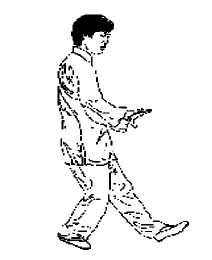 Qigong (pronounced chee-kung) is an energy practice or low-impact exercise program that generally encompassing simple movements and postures. Some qigong systems also emphasize breathing techniques.
Qigong (pronounced chee-kung) is an energy practice or low-impact exercise program that generally encompassing simple movements and postures. Some qigong systems also emphasize breathing techniques.
Here’s a summary of three qigong studies in patients published last year.
Aerobic training vs qigong in advanced Parkinson’s disease (PD)
- All patients received both treatments
- 20 aerobic training sessions
- 20 ”qigong” group sessions
- A 2-month interval between the activities
- Aerobic training (but not qigong) improved the ability of moderately disabled PD patients to cope with exercise, but did not improve their self-sufficiency and quality of life
Qigong vs progressive relaxation in patients with heart disease
- All 65 elderly patients received eight, 20-minute sessions of each treatment in different order
- Progressive relaxation more effectively reduced blood pressure
- Relaxation was most beneficial in controlling somatic complaints (eg, aches and pains, dizziness, constipation or diarrhea)
- Qigong showed greater improvement in psychological outcomes (eg, anxiety, depression) in addition to reducing systolic blood pressure
Qigong exercise in depressed elderly patients with chronic illnesses
- Qigong practice for 16 weeks vs newspaper reading in 82 people
- Qigong relieved depression and improved coping skills and personal well being
The bottom line?
There’s probably some aspect of vital energy “qi” that is not measured by these studies, although two out of three were conducted in Hong Kong.
Engaging in regular physical activity is beneficial. And qigong is an option for low-impact exercise, with benefits for people who use it. The most reasonable recommendation, it seems to me, is for all of us to include some form of physical activity in our daily lives.
10/31/06 20:08 JR